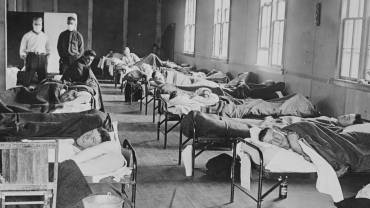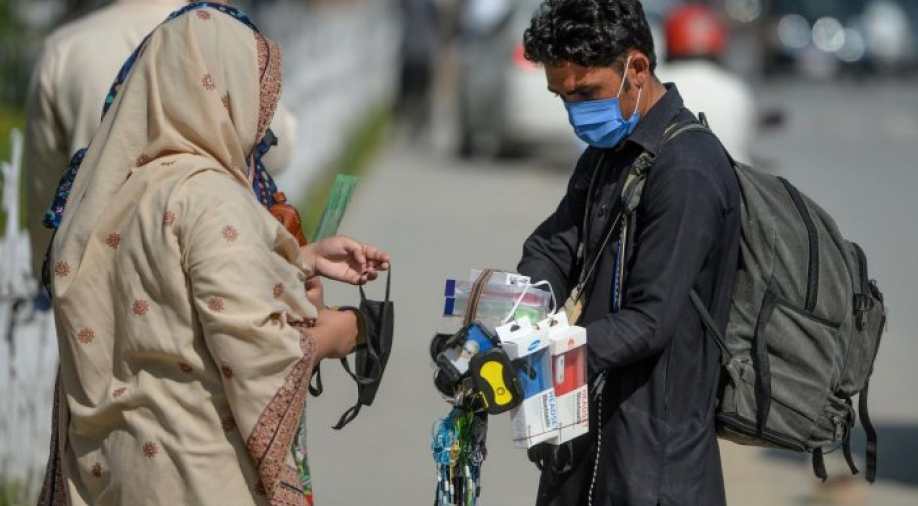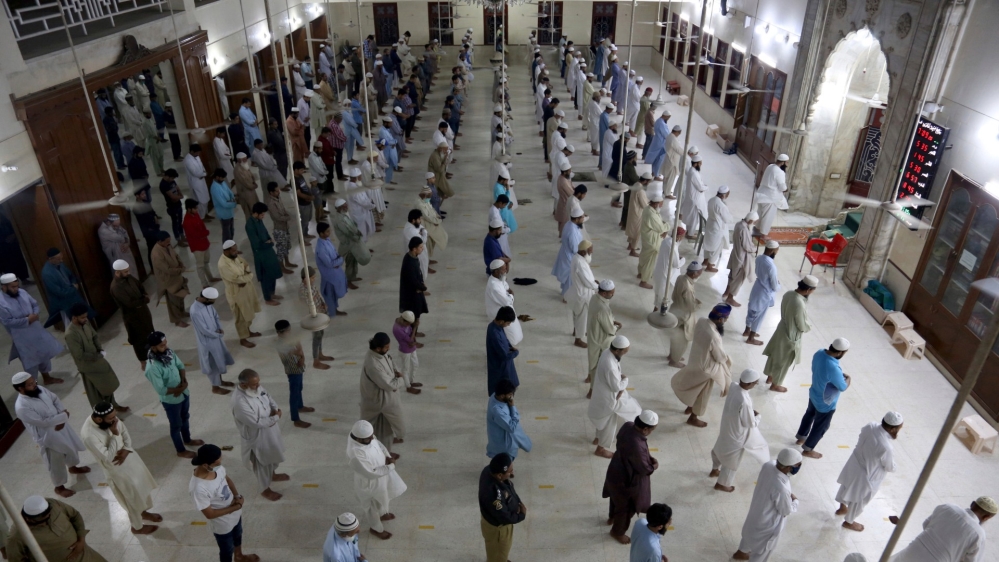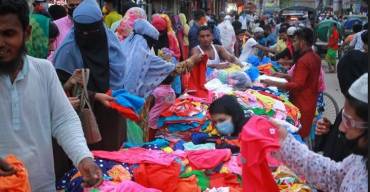Disclaimer*: The articles shared under 'Your Voice' section are sent to us by contributors and we neither confirm nor deny the authenticity of any facts stated below. Parhlo will not be liable for any false, inaccurate, inappropriate or incomplete information presented on the website. Read our disclaimer.
This article was originally submitted by Fatima Niazi
History repeats itself. This quote stands true in the cases of all pandemics that have shaken the world to the core.
In 1918, the Spanish flu spread worldwide and infected about one-third of the world’s population – the number of deaths estimated to be around 50 million.
A century later 2019 saw a virus that has caused the world to fall to its knees. As of May 8, 2020, close to 299,590 people have died over the world; due to the SARS-Cov2 (the novel coronavirus).
Yes, history repeats itself
But the high death toll isn’t the only similarity between the two pandemics. Like today, numerous cities in the past failed to assess how to control the influenza outbreak. And similar to Pakistan, certain cities in 1918 also made the decision of lifting the lockdown early.
In the fall of 1918, San Francisco was lauded for the measures it took to curb the spread of the Spanish flu. Wearing masks in public were made mandatory and strict social distancing rules were adopted. But as the number of patients admitted to hospitals dropped, the San Francisco government decided to terminate its lockdown.

via history.com
On the 21st of November 1918, hundreds of people took to the streets to celebrate the end of quarantine and threw their masks in the air. However, the celebration was short-lived as the very next month, the number of cases surged. By February 1, the city’s death count was 3,213 – doubling from 1,857 in November.
Similarly, a parade held in Philadelphia in the summer of 1918 caused a sudden spread of influenza. Within 72 hours of the parade, around 31 hospitals were filled with infected citizens. By October 1918, 4500 people had died.919, the city’s death count
Yes, history repeats itself—but only because we refuse to learn from the mistakes of the past.
Also read: This Is What Prophet Muhammad (PBUH) Would Have Done During Pandemic

via WION
The statistics from the past clearly state the detrimental impact of discontinuing precautionary measures such as social distancing, banning public transport and social gatherings before the virus is completely eliminated from a city.
Are we prepared for the consequences?
As stated by the Smithsonian magazine, influenza and the coronavirus “love crowds.” And the month of Ramazan in Pakistan is all about crowds – whether it’s taraweeh prayers, iftars or Eid shopping.
As we approach the last ten days of the auspicious month, the chances of people gathering in large groups are increasing. The 27th of Ramazan and the first day of Eid might see hundreds of people flock to the mosques. Not to forget, Eid is a religious holiday that is known to bring together distant relatives who meet for shopping sprees and dinners. Has the government considered this situation when relaxing the lockdown?
The question is, are we prepared for the consequences? We certainly don’t have enough hospitals and ventilators to take care of more than 40 thousand patients.

via al jazeera
Keeping the lack of health facilities available to treat a massive number of individuals in mind, it is crucial the government takes measures to impose social distancing restrictions on mosques during taraweeh prayers. This includes wearing masks and standing 6 feet apart.
Why social distancing is crucial
According to studies conducted by the World Health Organization (WHO) and several health departments over the world, COVID-19 is largely spread when people come in close contact with the respiratory droplets of an infected individual. The only solutions: social distancing, frequent handwashing and disinfecting, and staying at home.

Additionally, those who have to go out for groceries and essential work must make sure they wear a mask at all times.
According to Saima Ali, a gynaecologist, people in the Gulshan-e-Iqbal area in Karachi are gathering at houses for taraweeh prayers.
“They don’t wear masks, nor do they stand 6 feet apart,” she explains. “They are all neighbours and friends, so they trust each other and don’t feel the need for precaution.”
While there are photos circulating on social media that show mosques following full protocol, there are also numerous prayer halls that have completely discarded the idea of abiding by the regulations.
This was revealed by a filmmaker Fariha Zaheer who lives in F8 Islamabad. “I have seen countless people go into the mosque in my neighbourhood without a mask,” she shared. “The safety measures are not being followed at all.”

via jagonews24
The fact is, not every mosque around the city can be checked, neither can the authorities stop people from stepping out now that the lockdown has been eased.
With so many gatherings expected to occur in the next 10 days and nearly 35,000 people already infected, what will be Pakistan’s fate?
Also read: Taraweeh, Eid Prayers To Be Done At Home Amid Coronavirus: Saudi Grand Mufti
Here are some activities that may cause the coronavirus to spread like wildfire
- Crowds at prayer halls
- Iftar gatherings
- Parties
- Offices
- Eid shopping
- Rallies
- Public transport like buses
- Running/walking in large groups
What do you think about the story? Tell us in the comment section below







